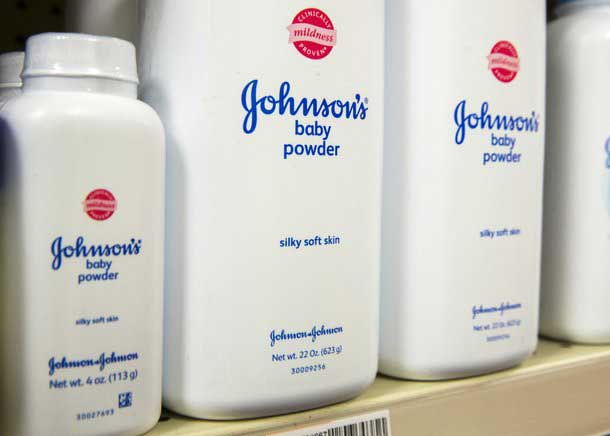A jury in the USA has ordered Johnson & Johnson to pay US$4.69 billion to women who claimed asbestos in the products caused them to develop ovarian cancer, marking one of the largest product-defect verdicts in U.S. history.
The award — US$4.14 billion in punitive damages and US$550 million to compensate 22 women and their families has already affected J&J shares.
The verdict by jurors in St. Louis city court came in the first test of plaintiffs’ claims of an asbestos-ovarian cancer link in use of J&J’s iconic baby powder. The asbestos cases are part of more than 9,000 claims alleging that J&J’s talc products cause cancer.
The company will appeal said a spokesperson, according to Bloomberg. The verdict “was the product of a fundamentally unfair process that allowed plaintiffs to present a group of 22 women, most of whom had no connection to Missouri, in a single case all alleging that they developed ovarian cancer,’’ she said.
That each plaintiff and her family members were awarded $25 million for their losses “irrespective of their individual facts, and differences in applicable law, reflects that the evidence in the case was simply overwhelmed by the prejudice of this type of proceeding,’’ the spokesperson added.
The company’s products don’t contain asbestos and don’t cause ovarian cancer, she said. The spokesperson predicted the verdict would be reversed.
However, the plaintiffs’ lawyer Mark Lanier said J&J should pull its talc-based products from the market or “mark it with a serious warning,” reports Bloomberg.
Most of the women in the recent trial used baby powder, but others used Shower-to-Shower, another of J&J’s talc-based products. J&J sold the product to Valeant Pharmaceuticals International Inc. in 2012. Valeant now faces suits over the body powder.
J&J has faced multiple trials in St. Louis over ovarian cancer claims, losing four of the first five to go to trial. J&J is also fighting a separate battle with plaintiffs who blame the company’s talc products for their developing mesothelioma, a form of cancer generally found in the lungs, that is linked to asbestos exposure.



